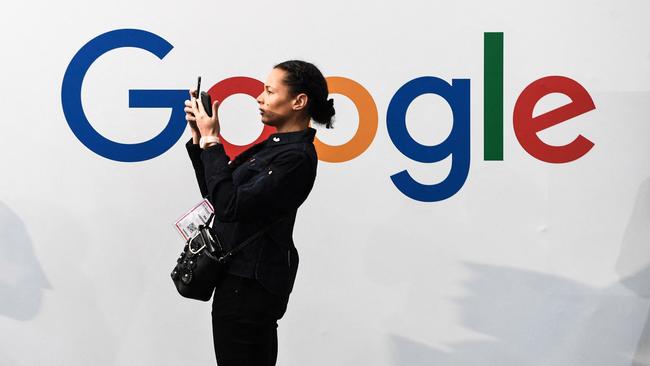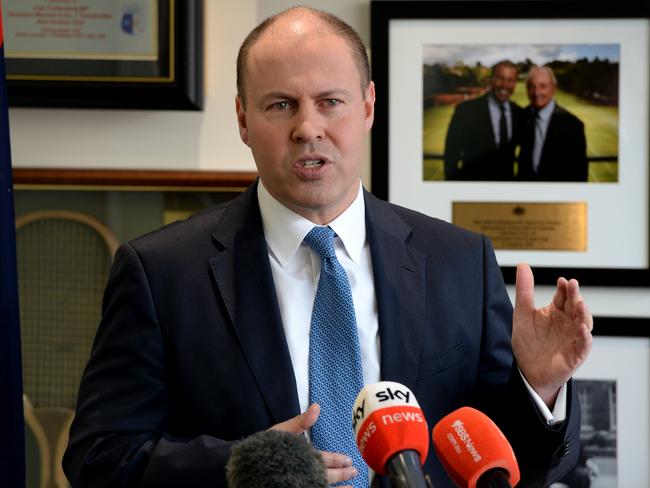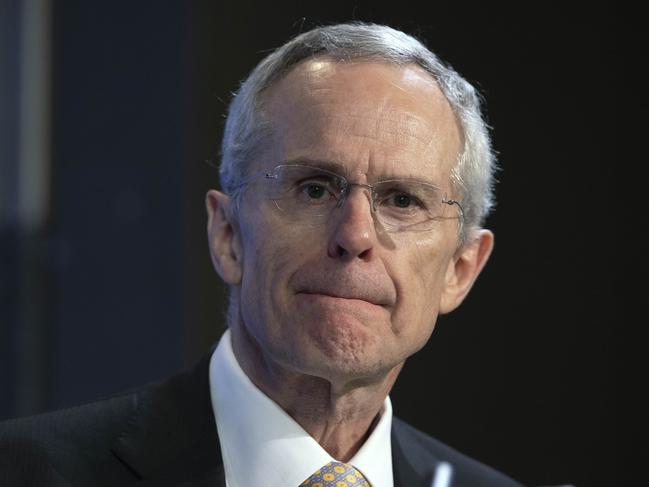Google ‘abused market power’: watchdog
Google’s complete dominance of online advertising is driving up prices for consumers and advertisers, the ACCC says, forcing Josh Frydenberg to consider new laws

Google’s complete dominance of online advertising – where it has a 90 per cent share of the $3bn local market – is driving up prices for consumers and advertisers, according to a damning report from the competition regulator.
The Australian Consumer and Competition Commission found the search engine giant was using its size to deliberately reduce competition, harming businesses, consumers and publishers.
Josh Frydenberg is considering new laws to rein in Google’s power, with the ACCC’s final report into digital advertising services recommending the watchdog be given powers to change the way the company did business.
Under current laws, the ACCC would be forced to launch lawsuits against Google that would take years to resolve and likely only result in fines, the watchdog’s chairman Rod Sims said.
“The fact Google has dominated so much has means you lost a lot of competition tension in the system, and Google have done things to reduce that tension,” Mr Sims said. “Google’s activities across the supply chain also mean that, in a single transaction, Google can act on behalf of both the advertiser (the buyer) and the publisher (the seller) and operate the ad exchange connecting these two parties. As the interests of these parties do not align, this creates conflicts of interest for Google which can harm both advertisers and publishers.”’
The ACCC’s 200-page report found that a lack of competition meant advertisers paid higher prices for poorer quality services “resulting in poorer returns”. “These increased costs may then be passed on to consumers in the form of higher prices for goods and services supplied by those advertisers,” the report read.

Publishers of online content also earned less revenue, which left them likely to “produce less, and/or lower quality, online content,” the inquiry concluded.
“Australian consumers are therefore at risk of facing reduced access to diverse and high quality information and services online. This is particularly problematic where digital advertising is used to fund content that is important to the public or has broader public benefits, such as journalism.”
Angela Flannery, a lawyer specialising in data and privacy at Holding Redlich, said new legislation similar to the News Media Bargaining Code was now needed to rein in Google’s dominance.
“The harms created do not just impact publishers, who are likely currently not receiving a fair share of advertising spend, but advertisers are spending too much for advertising,” she said.
“Ultimately, this means Australian consumers are disadvantaged – not only by having access to less quality content from Australian publishers who have less to invest in producing that content, but also by paying higher prices for goods and services, as advertisers pass on their higher advertising costs to customers.
“Basically, Australians are paying another ‘Google tax’ from the inefficiencies in the ad tech services market,” she said.
The Treasurer on Tuesday said: “Digital platforms have fundamentally changed the way that media content is produced, distributed and consumed.”
“It is therefore important that our regulatory frameworks keep pace with the changes being driven by digital platforms,” he said.
“The ACCC’s broader Digital Platform Services Inquiry will provide an opportunity to consult on its findings into digital advertising services and to further consider the need for any additional requirements in this area.”
Ad tech services are used in the buying and selling of digital display advertising through open display channels. Google’s technology powers the real-time auctions in which the ads are sold, and the company controls virtually all of the advertising supply chain.
The ACCC’s probe found the tech giant had used its position to preference its own services and shield them from competition.
Google prevents rival ad tech services from accessing ads on YouTube, for example, preferencing its own services instead.

Michelle Rowland, Labor’s communications spokeswoman, said she supported the ACCC’s efforts to promote competition in the online advertising market.
“Competition authorities around the world are working to understand and address the dominance of digital platforms, which have grown up around them, just as the need for new regulatory -approaches continues to be explored,” she said.
Mr Sims said he would be work with his counterparts particularly in Europe on new rules that could potentially prevent Google from favouring its own services.
“We’re working with our international colleagues on trying to work out the most appropriate set of rules, and we’ll aim to put those to government in September next year,” he said.
“We are also going to be looking at rules that could apply in relation to app stores because Google and Apple, particularly on mobiles, dominate the app stores.
“Ad tech is dominated by one company and that stifles innovation, it stifles productivity, and it makes it harder for new players to compete. We have to have a much more competitive internet, and that will only benefit Australians, be they users or businesses.”
Peter Lewis, the director of the Centre for Responsible Technology, said the Morrison government must act on the watchdog’s recommendations.
“The ACCC report has confirmed what we know about Google’s anti-competitive market dominance in advertising,” he said. “Ad tech is what powers the internet economy and Google has for too long abused their dominant position in this industry, particularly their ability to collect user data from multiple sources.
“The government must now act on the ACCC’s recommendations and ensure stronger protections for Australian consumers, especially around ensuring purpose limitations for all collection of personal information.”
A Google spokesman said in a statement that Google’s ad tech services were “delivering benefits for businesses and consumers”.
The spokesman pointed to analysis by PwC Australia that found three quarters of Google’s ad tech customers were Australian small and medium businesses, and that Google’s ad tech directly supported more than 15,000 full-time equivalent jobs and contributed $2.45bn to the economy annually.
“As one of the many advertising technology providers in Australia, we will continue to work collaboratively with industry and regulators to support a healthy ads ecosystem,” he said.



